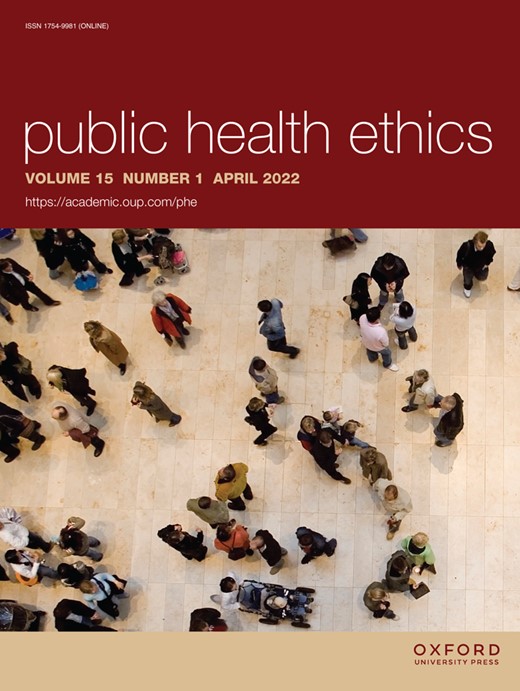-
Views
-
Cite
Cite
Karen M Meagher, Excellent Traits in Public Health: Virtuous Structures and the Structure of Virtue, Public Health Ethics, Volume 15, Issue 1, April 2022, Pages 16–22, https://doi.org/10.1093/phe/phac003
Close - Share Icon Share
Abstract
MacKay’s Public Health Virtue Ethics offers a distinctive approach to public health ethics, with social structures at the forefront. MacKay’s helpful overview of the recent literature considers three distinct referents for ascribing virtues in public health ethics: (i) individuals, such as public health practitioners, (ii) social structures, such as public health institutions and policies and (iii) the communities affected by public health policy. While MacKay is interested in virtuous structures, I am interested in the structure of virtue as a precursor to this approach. In this commentary, I seek to unpack the structure of virtue itself, to delineate what various accounts of public health virtues offer, including MacKay’s new account. For such clarity, I turn to David Pears’ neo-Aristotelian essay on moral courage, in which he distinguishes external goals, internal goals and countergoals. Additional virtue vocabulary advances discussion of how the moral psychology of virtue traditions can be best adapted to public health professions, policy and practice.



